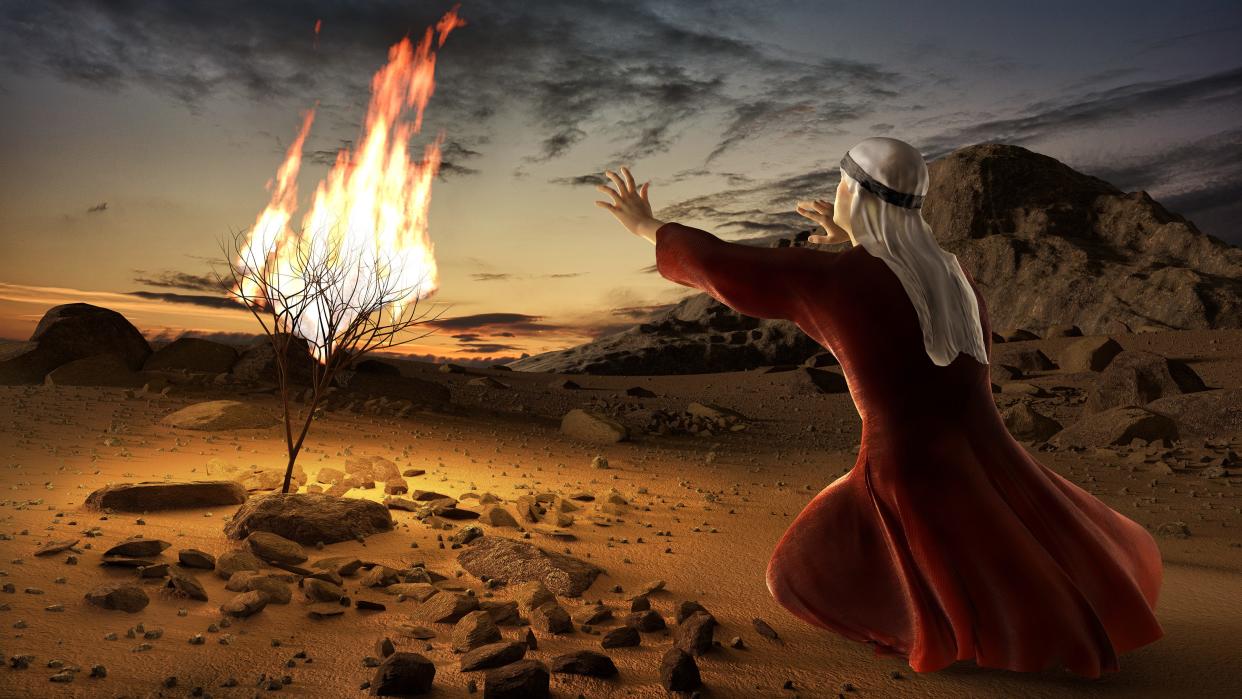The Rev. Lori Walke: Our burning bush is the dumpster fire that is our state

Editor's note: As part of our commitment to foster civil conversations in Viewpoints, we're inviting faith leaders to submit edited versions of their homilies that transcend religion, with messages that can appeal to people of all faith traditions.
Recently, one of the alternative readings in the lectionary was the story of Moses and the Burning Bush. It’s a Top 10 Bible story. If you have been living in Oklahoma for the last five years, it’s likely that the phrase “Top 10” has lost all meaning because of Gov. Kevin Stitt. He made big promises about turning Oklahoma into a “Top 10 state,” but what the governor didn’t tell anyone was that it was also Opposite Day ― for his entire time in office. But the numbers don’t lie. According to CNBC’s most recent annual ranking of the best states to do business, under Gov. Stitt’s leadership, we rank 41st overall, down from 38th in 2022 and 32nd in 2021. Our scores in education and quality of life are also among the worst in the nation.
To clear up any confusion, anything that is labeled “Top 10” is supposed to indicate the best of, the highest ranking, or the most popular ― not the worst or among the worst. So, with that in mind, Moses and the Burning Bush is a Top 10 Bible story.
The story’s name indicates what often holds our attention ― the burning bush — but it would be remiss of us to ignore that this is a story about God and politics. Apparently, God did not get the “no politics in church” memo.
The text says, “Then the Lord said, 'I have observed the misery of my people who are in Egypt; I have heard their cry on account of their taskmasters. Indeed, I know their sufferings, and I have come down to deliver them …” God plans to meddle in the politics of Pharaoh and disrupt the economics of Egypt, siding not with those in power, but with those in poverty. God does not plan to just throw weight around; Moses will be the boots on the ground, so to speak, negotiating with Pharaoh, organizing a grassroots movement, and leading the people out of captivity.
If only we took this story seriously.
More: Lori Walke: Where do you start in explaining importance of separation of church and state?
The idea of mixing politics and religion is off-putting to many people, but this is because politics is often confused with partisanship. Partisanship can be defined as harassing an enemy, red versus blue, and dividing into teams. Partisan is often used as an adjective for politics, as in ‘partisan politics,’ which opens the door for considering that politics is different from partisanship. When politics is partisan, it is all too often cultish and self-serving, and thus decidedly un-Christian.
What, then, is politics without partisanship? “Politics,” says theologian Jim Wallis, “embraces not only legislative and electoral activism, but also how a community/society organizes itself, how it makes decisions, and what decisions it makes."
Theologian Marcus Borg notes that all of scripture is a call to political action.
Politics, then, is how people organize themselves, shape our collective living and set priorities. People of faith should certainly be involved in this work. As Walter Taylor, the first Black mayor of Englewood, New Jersey, wrote, “Politics determines the kind of world you will be born in, the kind of education, health care and job you eventually get, how you will spend your old age and even how you die. The church must address itself to, and be involved in, anything that affects life as great as this.”
One of the tenets of progressive Christianity is an orientation towards social justice, which means that we prioritize salvation from the hell-on-Earth caused by social norms, laws and policy, instead of salvation from an afterlife of damnation. These two things are not mutually exclusive, but as Borg explains, “Salvation in the Bible is political, a dimension that is often missed when we are limited to understanding the word within the heaven-and-hell framework. A historical-metaphorical reading of scripture restores a crucial dimension to what the Bible means by salvation … [which] is central to the story of the exodus, the prophets, Jesus, and Paul … [and] has two focal points: justice and peace.” Progressive Christianity looks to continue this work in our time, seeking to make salvation from injustice and violence possible in the here-and-now, siding not with those in power, but with those in poverty.
With our status as a Top 10 state for highest poverty rates, we can hear the cries of those who are suffering. Our burning bush is the dumpster fire that is our state. If we quit messing around with partisanship and get busy with the real work of shaping a just world, all of us might actually experience salvation. That sounds a lot like the Gospel.

The Rev. Lori Allen Walke is senior minister at Mayflower Congregational United Church of Christ.
This article originally appeared on Oklahoman: Oklahoma's scores in education, quality of life among worst in nation

